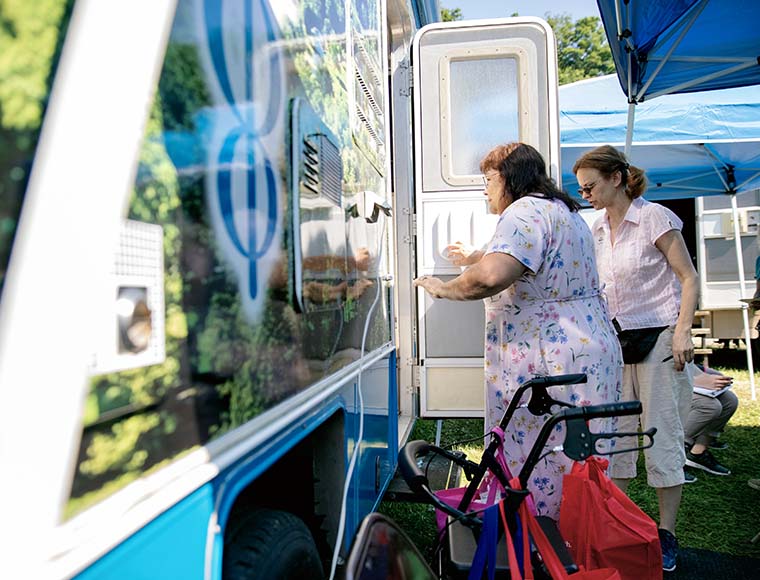Nicole Truhe is Senior Director of Policy, Kaitlin Zahn is Senior Director of Clinical Operations and Kathryn Spiess is Associate Director of Maternal and Child Health Strategy with UnitedHealthcare Community & State.
The American Rescue Plan Act of 2021 granted states the authority to use the state plan amendment pathway to extend postpartum Medicaid eligibility through the first year after birth, but the authority was given for only five years. In December, Congress passed the Consolidated Appropriations Act of 2023, making the state plan option pathway permanent for states interested in pursuing it. The Centers for Medicare & Medicaid Services (CMS) is offering guidance for states interested in pursuing the new 12-month extended postpartum coverage option.
More than half of states have already taken advantage of this opportunity and additional states are expected to pursue the option in 2023.
Acknowledging the critical late postpartum period
Historically, the health risks associated with the period after childbirth were believed to be limited to the six weeks immediately after delivery. In recent years, this view has been challenged and evidence now demonstrates that many conditions impact maternal and infant health outcomes, as well as subsequent pregnancy outcomes, up to one year postpartum.1
For example, approximately 33% of pregnancy-related deaths occur between 7 and 365 days postdelivery. With 42% of births covered by Medicaid, individuals who are pregnant and enrolled in Medicaid are disproportionality impacted by these outcomes. Most of these deaths are preventable through high-quality care for cardiac disease and behavioral health conditions such as depression and substance use disorders.
Extended postpartum coverage will enable more opportunities to provide comprehensive services during a vulnerable period, including:
- Physical recovery support, screening, and care for conditions that lead to chronic disease or death
- Management of chronic health conditions, behavioral health needs, and family planning service access
- Supportive services and counseling on key challenges such as nutrition, breastfeeding, and tobacco and drug use
- Support in retaining Medicaid/CHIP coverage or successfully transitioning to other coverage
- Development and expansion of person-centered models of care such as doula services and home visiting
Increasing equity while reducing health risks
Stark racial and ethnic disparities in maternal and infant health have persisted for decades. Despite medical advances and the growing focus on the widening gap in outcomes, people who are Black and Indigenous continue to experience substantially worse outcomes compared with individuals who are white, including in the postpartum period.
For instance, individuals who are Black are significantly more likely to die of hypertension and cardiac-related diseases in the late postpartum period compared with other racial groups.2 Additionally, individuals who are Black are more likely to experience postpartum depression than other racial groups and less likely to engage in postpartum depression care due to stigma.3 Infant death rates are double for families who are Black, Indigenous and people of color (BIPOC) compared with families who are white.4
Extending postpartum coverage creates meaningful opportunities to address conditions that disproportionately impact BIPOC individuals and families who are in the postpartum period — including improved control of hypertension for those most at risk of cardiovascular-related mortality, screening and management of behavioral health conditions, and increased access to contraceptive care.
Extending essential coverage for parents and babies
Extended postpartum Medicaid coverage is a critical step to addressing the persistently poor outcomes and widening disparities in maternal and infant health. The current 60-day coverage cliff limits access to essential services such as family planning and long-acting reversible contraception, primary care, and management of behavioral health conditions that are known to reduce rates of maternal mortality, as well as preterm and gestationally small babies in future pregnancies.5,6
The COVID-19 public health emergency’s continuous coverage protection has provided a natural study of the impact of extended postpartum Medicaid coverage. Continuous postpartum enrollment has resulted in substantial increases in health care utilization, including twice as many postpartum services, ten times as many contraceptive services, and three times as many visits for behavioral health care, including substance use disorders. Importantly, extended postpartum Medicaid coverage is correlated with decreased maternal and infant mortality rates for families who are Black.
This new extended coverage option is well-positioned to improve outcomes for families and address the widening gap for BIPOC individuals. UnitedHealthcare Community & State is prepared to serve our postpartum members with programs and services specifically designed to address the unique needs of growing families.
Sources
- Expanding Postpartum Medicaid Coverage
- Racial and Ethnic Disparities Continue in Pregnancy-Related Deaths
- Addressing the Increased Risk of Postpartum Depression for Black Women
- Racial Disparities in Maternal and Infant Health: Current Status and Efforts to Address Them
- Predicting and Preventing Preterm Birth: Recommendations From ACOG
- Early Preeclampsia Effect on Preterm Newborns Outcome












